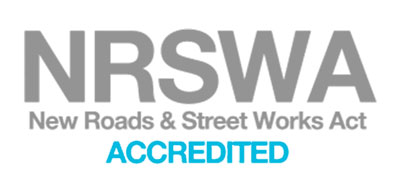 Empowering Infrastructure: Recognising the Importance of NRSWA Assessments
Empowering Infrastructure: Recognising the Importance of NRSWA Assessments
As the infrastructure landscape evolves, the significance of New Roads and Street Works Act (NRSWA) assessments cannot be overstated. Particularly in the North West regions, where construction projects and urban development initiatives are thriving, NRSWA assessments play a pivotal role in ensuring the safety, efficiency, and compliance of street works operations. As an industry expert, I’m here to shed light on the importance of NRSWA assessments and their critical role in driving employment opportunities in the North West.
Ensuring Safety and Compliance
NRSWA assessments serve as a linchpin in upholding safety standards and regulatory compliance within the realm of street works and road maintenance. By assessing the competence of individuals involved in excavation, reinstatement, and other street works activities, NRSWA ensures that operations are carried out in accordance with prescribed standards and regulations, mitigating risks and safeguarding public safety.
Enhancing Skills and Expertise
In addition to regulatory compliance, NRSWA assessments contribute to the enhancement of skills and expertise among workers in the construction and utilities sectors. Through rigorous training and assessment, individuals acquire specialised knowledge and proficiency in areas such as excavation techniques, trenching, backfilling, and reinstatement, making them valuable assets to employers in the North West region.
Driving Employment Opportunities
In the dynamic landscape of the North West’s construction industry, NRSWA-certified individuals are in high demand. Employers across various sectors, including construction, utilities, telecommunications, and local authorities, seek skilled workers who possess NRSWA qualifications to execute street works projects efficiently and effectively. By obtaining NRSWA certification, individuals enhance their employability and open doors to a wide range of job opportunities in the North West region.
Supporting Infrastructure Development
Infrastructure development is a cornerstone of economic growth and urban renewal in the North West. NRSWA assessments play a crucial role in supporting infrastructure projects by ensuring that street works activities are carried out seamlessly, minimising disruption to communities and maximising the longevity of infrastructure assets. Whether it’s laying new utilities, upgrading road networks, or enhancing public spaces, NRSWA-certified workers contribute to the success and sustainability of infrastructure initiatives in the region.

Embracing Opportunities for Growth
As the North West region continues to witness rapid urbanisation and infrastructure expansion, the demand for NRSWA-certified professionals is expected to grow exponentially. By investing in NRSWA training and certification, individuals not only position themselves for employment opportunities in the construction industry but also embark on a path of continuous professional development and career advancement. With the right skills and qualifications, individuals can carve out rewarding careers in street works, utilities maintenance, project management, and other related fields, contributing to the prosperity and progress of the North West region.
NRSWA assessments play a vital role in ensuring safety, compliance, and efficiency in street works operations across the North West region. By recognizing the importance of NRSWA certification and investing in training and assessment, individuals can unlock a world of employment opportunities in the dynamic and thriving construction industry of the North West. Let us embrace the power of NRSWA assessments to drive safety, skills development, and economic growth in our communities.
The content of the NRSWA Streetworks training and assessment program typically covers a range of topics related to the planning, execution, and maintenance of street works activities. The program is designed to provide participants with the knowledge and skills necessary to carry out street works operations safely, efficiently, and in compliance with regulatory requirements. While specific course content may vary depending on the training provider and the level of certification being pursued, the following are common elements found in NRSWA Streetworks training & assessment programs:
- Legislative Framework: Participants are introduced to the legislative framework governing street works activities, including the New Roads and Street Works Act (NRSWA) and associated regulations. They learn about their legal responsibilities and obligations as street works operatives, supervisors, and managers.
- Safety Considerations: Safety is a paramount concern in street works operations. Training programs cover essential safety considerations, including hazard identification, risk assessment, traffic management, and the use of personal protective equipment (PPE). Participants learn how to minimize risks to themselves, their colleagues, and the public while carrying out street works activities.
- Excavation and Trenching: Street works often involve excavation and trenching activities for the installation, repair, or maintenance of underground utilities such as gas, water, electricity, and telecommunications. Participants learn safe excavation techniques, including shoring, benching, and sloping, to prevent accidents and collapses.
- Backfilling and Reinstatement: After completing street works activities, it is essential to backfill excavations and reinstate the road surface to its original condition. Training programs cover best practices for backfilling, compaction, and reinstatement techniques, ensuring that the work meets regulatory standards and minimises disruption to road users.
- Utilities Awareness: Participants gain an understanding of the various utility services present underground, including gas, water, electricity, and telecommunications. They learn how to identify and locate underground utilities using plans, maps, and detection equipment to avoid accidental damage during excavation.
- Traffic Management: Effective traffic management is essential to ensure the safety of road users and workers during street works operations. Training programs cover traffic management principles, including the use of traffic signs, signals, and barriers, as well as the implementation of traffic management plans to minimise congestion and maintain traffic flow.
- Environmental Considerations: Street works activities can have environmental implications, such as soil erosion, pollution, and disruption to wildlife habitats. Participants learn about environmental best practices and regulations governing street works operations, including waste management, pollution prevention, and habitat protection measures.
- Communication and Collaboration: Effective communication and collaboration are key to the success of street works projects. Training programs emphasise the importance of clear communication between operatives, supervisors, contractors, and stakeholders to ensure that work is carried out safely, efficiently, and to the required standards.
- Emergency Procedures: In the event of an emergency or unforeseen circumstance, street works operatives must know how to respond quickly and appropriately to minimise risks and ensure the safety of everyone involved. Training programs cover emergency procedures, including evacuation protocols, first aid, and reporting requirements.
- Assessment and Certification: At the conclusion of the training program, participants undergo assessment to demonstrate their competency in street works operations. Successful candidates receive certification, which serves as evidence of their ability to carry out street works activities safely and in compliance with regulatory requirements.
NRSWA Streetworks assessments programs provide participants with the knowledge, skills, and certification necessary to work confidently and competently in the field of street works operations. By equipping operatives, supervisors, and managers with the necessary training and expertise, NRSWA aims to ensure the safety, efficiency, and quality of street works activities across the UK.